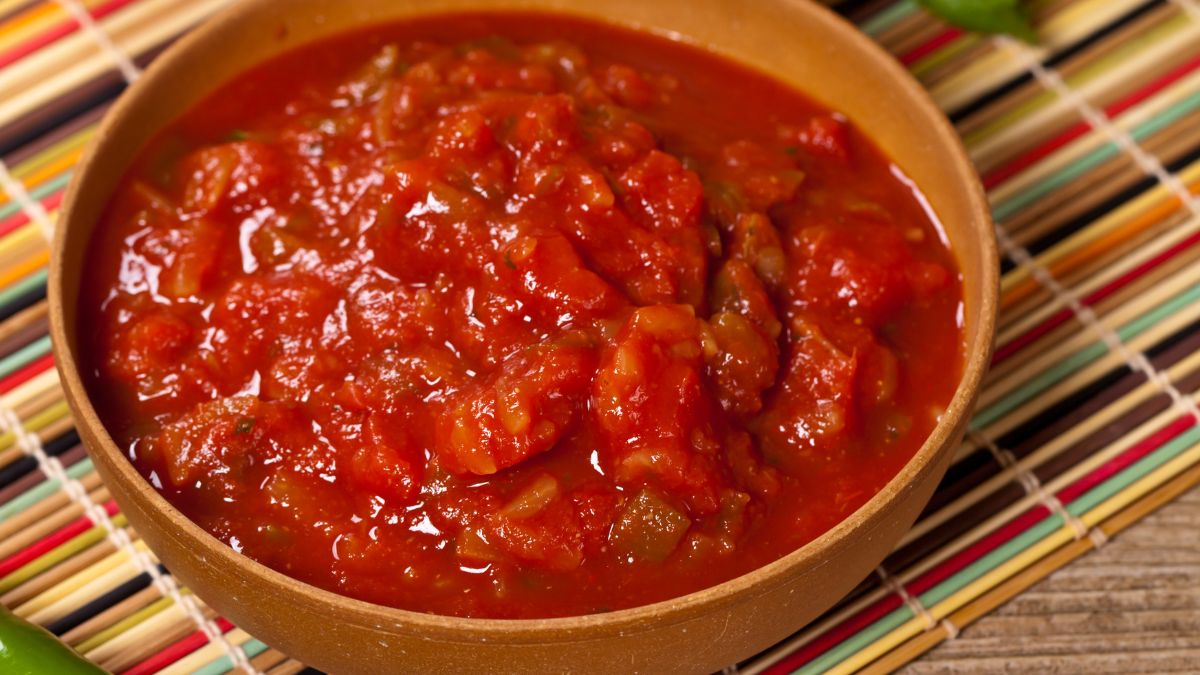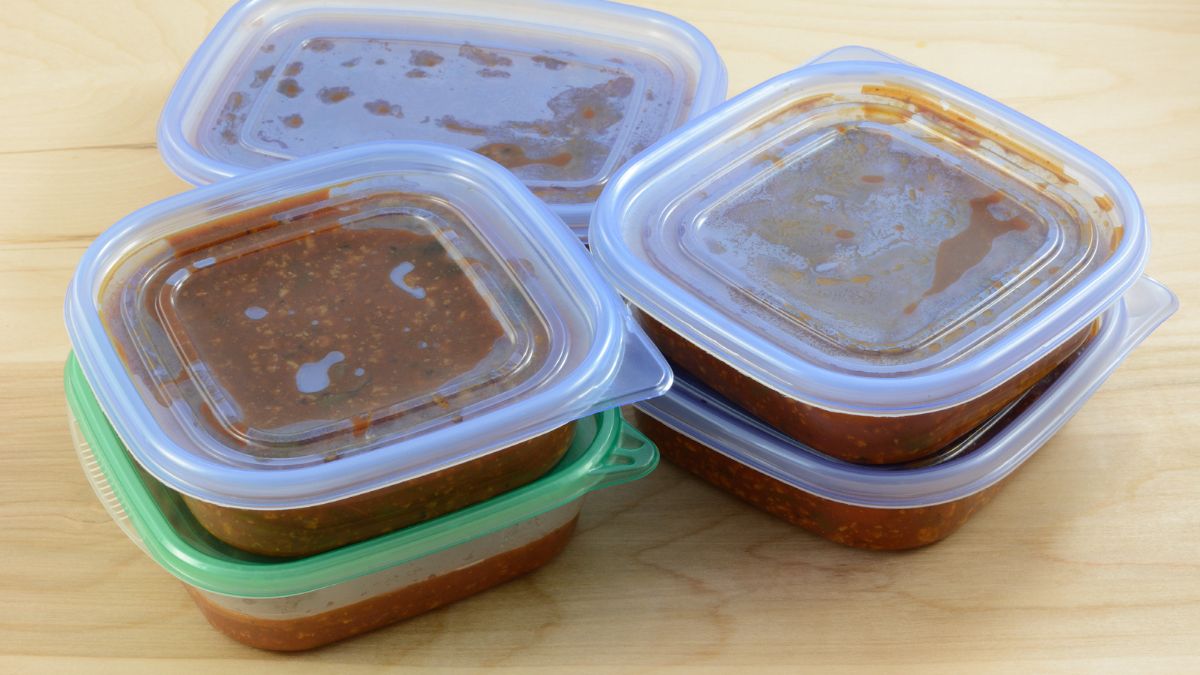This Is How to Preserve Salsa Without Canning!


Salsa is one of the most versatile sauces used for other purposes that aren’t traditional sauce uses. Whether you cook it or have it fresh, it is a delicacy made in a few short minutes, but if you have leftovers, you need to think of something to preserve it, as it will come in handy sometime in the future. So, how to preserve salsa without canning?
The only way to make salsa last longer without canning it is to freeze or vacuum it, which also needs to be frozen. It is okay to refrigerate salsa for shorter-term storage, but not for over a week.
Canning is the best method to preserve food long-term. However, canning is a very specific activity, and it requires some equipment you are not likely to have at home. So, in the following paragraphs, I will share some ideas on preserving pasta without canning it.
How to Preserve Salsa Without Canning?
Before I explain the methods of preserving salsa without canning it, I must stress that canning is the best way to preserve salsa and have it safe and tasty for a more extended period of time. There are alternatives, but none of them keeps the salsa so close to its original form. Therefore if you know how to do it and have what you need, opt for canning instead of an alternative.
Refrigeration
Refrigerating your salsa is more of a storage method than a preservation method; however, it can sometimes get the job done. Cooked salsa has a longer shelf-life than fresh, so if you know from the get-go that you won’t be using all of it in one sitting, either cook all pasta or cook only the part you will be using later.
The refrigerator will keep your salsa safe and sound for up to a week, but not later. In the case of fresh salsa, the limit is still a week, but it is riskier, so you better use your pasta five to six days after refrigeration.
Freezing
For longer preservation, the freezer is a far better option than the fridge, but it has certain downsides. Freezing can considerably damage the consistency of the salsa, meaning that it will likely be more watery and thin when you defrost it. Nevertheless, if you thaw it patiently and let it defrost on its own without forcing the process by adding heat, your salsa will be usable and tasty.
When freezing salsa, you need to ensure that there is no air in the container. Therefore, a plastic container, albeit airtight, won’t do the job, as there will still be space for air to penetrate. A glass jar is also not an option because glass breaks at low temperatures.

Therefore, your best options are either the freezer baggy or the ice tray. If you use the tray, you will have to let the salsa solidify and place it in a bag to protect it from air penetrating the salsa.
Although the ice tray isn’t the perfect option, it can still do a good job. However, if you can avoid using it for this purpose, I strongly advise you to do so.
If you opt for the baggy, make sure you squeeze the air before filling it with salsa. Don’t fill the baggy up to its maximum capacity, as the salsa will expand as it freezes, and having your baggy filled up to its maximum will cause it is rupture.
You can also use the vacuum sealing method, but you will need a special bag for that. If you don’t have one, don’t improvise.
Regularly frozen salsa lasts for about three months in the freezer, while vacuum-sealed salsa lasts for up to six-seven months.
Dehydration
Dehydration keeps salsa safe for a long time, but the downside is it isn’t reversible. Once you dehydrate your salsa, you cannot rehydrate it to its liquid state, but that doesn’t mean you cannot use it.
Dehydrated pasta works excellently as a condiment you can add to virtually any dish. It does retain its flavor, so you won’t lose that side of your salsa; however, it won’t be a sauce anymore.
Is Freezing Salsa Better Than Canning?
Although freezing salsa is a very practical option and a good alternative to canning, it is still not the preferable way to preserve it. Frozen salsa lasts for about three months, and vacuum-sealed and frozen salsa lasts for about six to seven months.
Canned salsa, on the other hand, lasts anywhere from a year to a year and a half, and sometimes it can hold up to two years if you store it in a very dry, cool, and dark area. Furthermore, frozen salsa and canned salsa aren’t the same, as the canning and freezing processes are very different and impact the salsa very differently.
While canned salsa is very similar, if not the same, as freshly made salsa, frozen salsa is very different when defrosted. Defrosted salsa is much moister, runnier, and thinner than canned salsa. The ice creates more water which is then absorbed by the salsa’s molecules.
Nevertheless, leaving the salsa to thaw on its own, without forcing the process by placing it into hot water or over a source of heat such as a hot plate, the oven, the microwave, or anything else, seems to yield the best results.
Flavor-wise, canned salsa is very flavourful since canning is a way to preserve the food the way it was before you canned it. Frozen salsa loses flavor to a certain degree, but again, if you made it delicious in the first place, it will be delicious after you defrost it but less intense.
How Do You Preserve Fresh Salsa Without Cooking It?
If you want to preserve fresh salsa, you can always can it. Canning is the best way to preserve salsa without cooking it, and Uncooked salsa tends to spoil sooner than cooked.
This happens because the thermal processing of the food, i.e., cooking, rids the food of any possible substances that can trigger the spoiling process. You can see cooking as disinfecting the food.
You can make your uncooked salsa last a little longer by adding some acidity, such as lemon juice or some vinegar, but this won’t preserve the salsa for long.
Another way to preserve your uncooked salsa is to freeze it. This way, it will be safe for up to three months if you freeze it the regular way or six to seven months if you vacuum seal it and freeze it.
